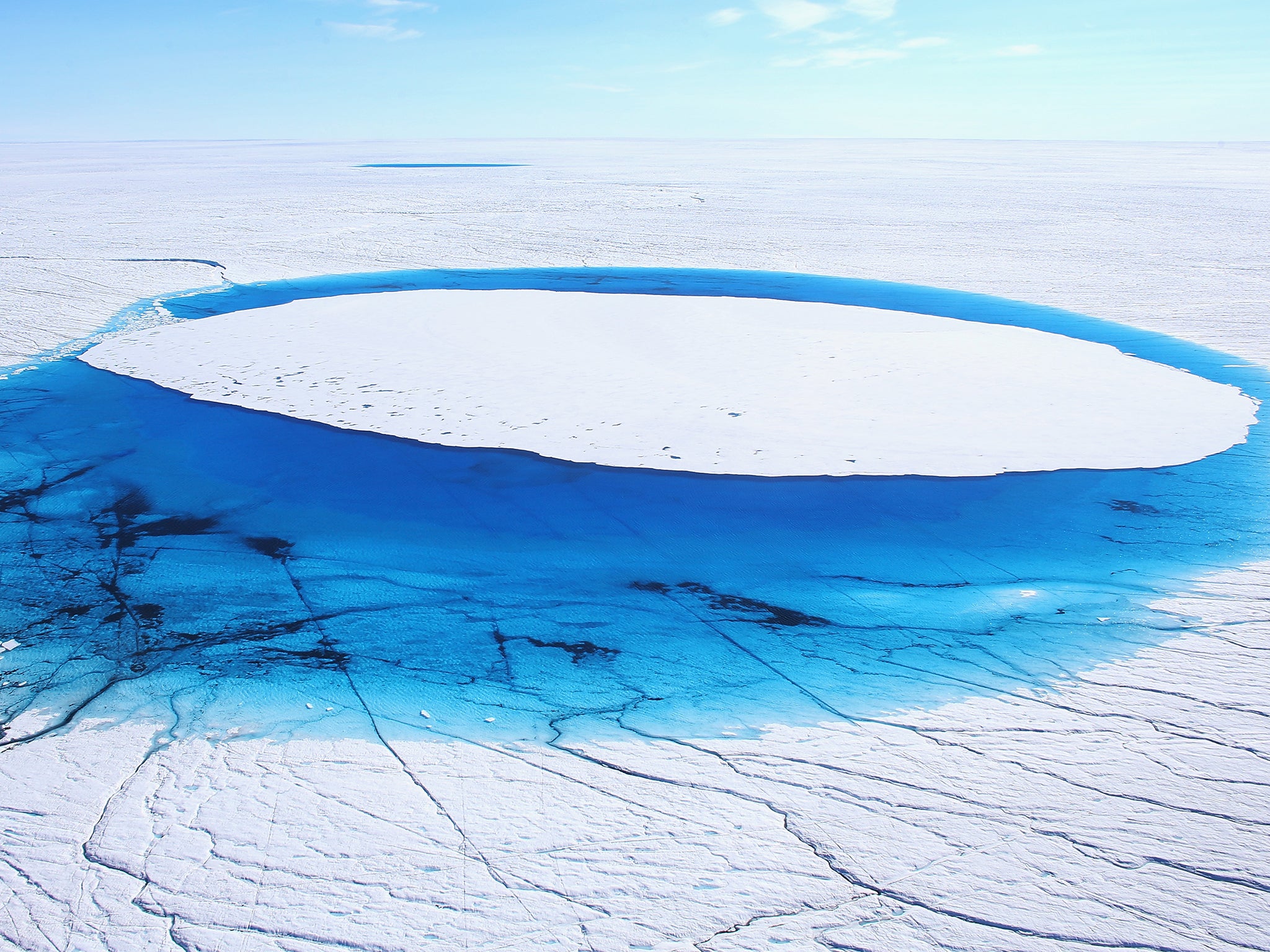Melting Greenland glacier threatens to raise sea levels 'for decades'
Up to 95 per cent of the floating, sea-based part of the Zachariae Isstrom glacier has been lost since 2002

A giant glacier in Greenland has started “calving” into the Atlantic, threatening to raise sea levels, scientists have warned.
Warming air and sea temperatures associated with climate change mean that the Zachariae Isstrom glacier is now melting at an accelerated rate of five billion tons of ice a year .
Up to 95 per cent of the floating, sea-based part of the glacier has been lost since 2002 and the ice is now retreating steadily inland, said the study by the University of California, Irvine. The glacier is now melting so fast it could recede 20 to 30km further inland over the next 20 to 30 years, warns Dr Jeremie Mouginot, lead author of the report, published in the journal Science.
“We know glaciers are melting. But what is surprising and worrying is that this glacier is breaking down so fast – and in the coldest part of Greenland,” Dr Mouginot said.
Until now, the northern part of Greenland was not thought to be losing ice in significant quantities but this latest research finds that large-scale melting has now spread to all parts of the country, he added.
“The shape and dynamics of Zachariae Isstrom have changed dramatically over the last few years. The glacier is now breaking up and calving high volumes of icebergs into the ocean, which will result in rising sea levels for decades to come,” said Dr Mouginot.
Using data from aerial surveys and satellite observations the researchers were able to monitor and record changes in the shape, size and position of glacial ice over 40 years.
They found that the bottom of the Zachariae glacier is being rapidly eroded by warming sea water mixed with growing amounts of relatively warmer meltwater from the ice sheet surface.
“Zachariae is being hit from above and below,” said co-author Eric Rignot. “The top of the glacier is melting away as a result of decades of steadily increasing air temperatures, while its underside is compromised by currents carrying warmer ocean water. And the glacier is now breaking away... and retreating into deeper ground.”
The research also found that a similarly huge neighbouring glacier in north-east Greenland, Nioghalvfjerdsfjorden, is also melting but at a slower rate because the glacier is protected by an inland hill.
The two glaciers make up 12 per cent of the Greenland ice sheet and would boost the world’s sea level by 39in (1m) if they both fully collapsed – an eventuality that, if it did occur, is expected to take centuries.
Glaciers play a particularly key role in the battle against climate change. Because their decline is relatively easy to see and to measure, they act as an important barometer.At the same time, melting ice accelerates climate change because the darker surfaces that replaces it absorb far more of the sun’s heat and reflect much less of it back into the atmosphere.
The effects of climate change around Greenland
Show all 5The new research comes in the week that a new report discovered the world has warmed by 1C since pre-industrial times for the first time, putting further pressure on the planet’s glaciers.
Record warm temperatures measured in the first nine months of this year mean that the world has already reached the halfway point towards the 2C increase on pre-industrial levels judged to be potentially dangerous for climate change, the Met Office said.
Meanwhile a University of Washington researcher calls on world leaders to pay more attention to how climate change will effect coastal societies around the world.
Professor Edward Allison said: “When people see headlines on science findings... they feel a sense of helplessness in the face of inexorable change.”
Subscribe to Independent Premium to bookmark this article
Want to bookmark your favourite articles and stories to read or reference later? Start your Independent Premium subscription today.

Join our commenting forum
Join thought-provoking conversations, follow other Independent readers and see their replies